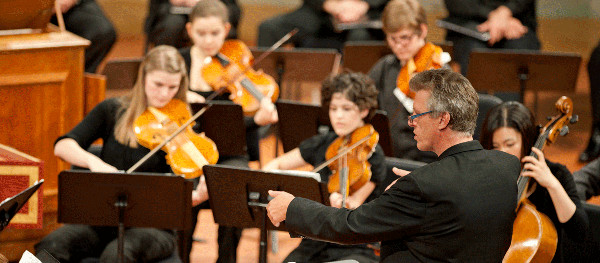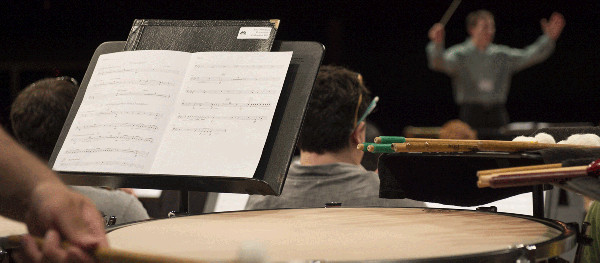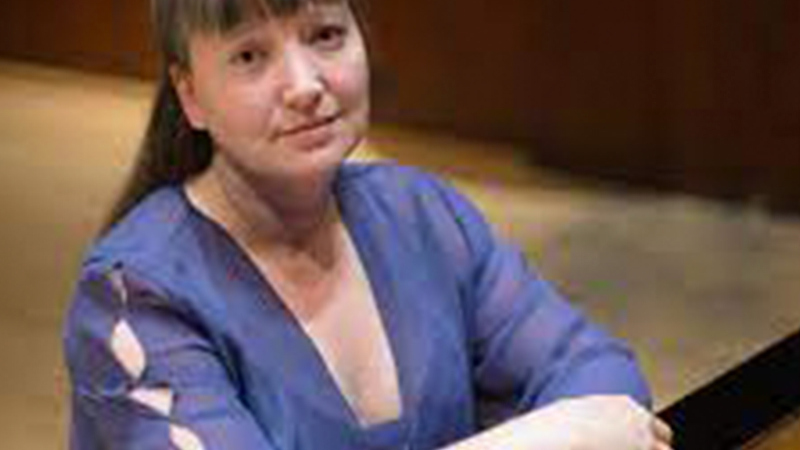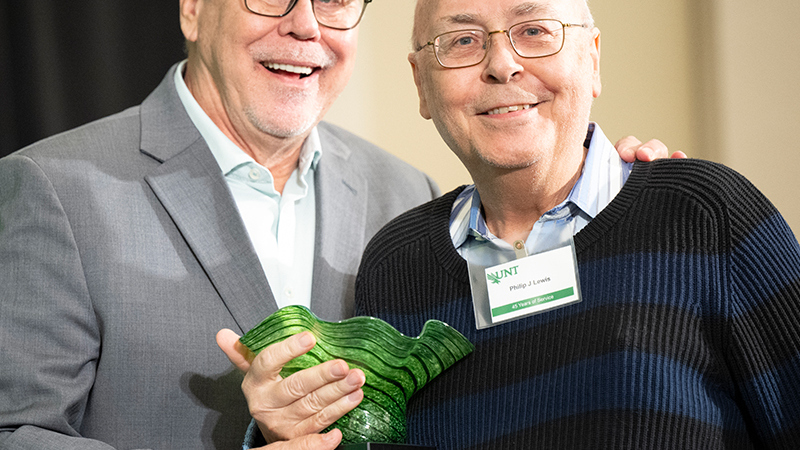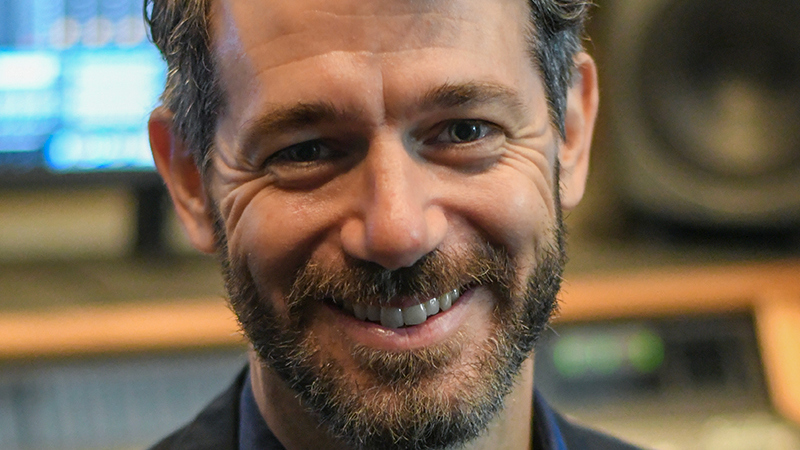Undergraduate Requirements
This page lists the classical audition requirements for all undergraduate majors. To review jazz repertoire requirements, please visit jazz.unt.edu/admission-auditions.
PLEASE NOTE:
- Sight reading may be included in each audition.
- Unless your instrument specifically indicates otherwise, all classical instrumental applicants are expected to audition without accompaniment of any kind.
- Transfer composition applicants must submit several representative manuscript compositions. See composition.music.unt.edu for details.
- All composition and music education applicants will be scheduled for an interview with the faculty during their live audition.
- Final video auditions and screenings (if applicable) must be both audio and video; audio only submissions are not acceptable.
- Audition dates
- A screening (preliminary audition video) is required for applicants in the following areas. The screening will be submitted directly through the Acceptd application.
- Classical Voice
- Commercial Music
- Electronics
- Jazz Studies
- Piano Performance
- Violin Performance
Bassoon
- Prepare three contrasting selections by style and period. These selections should include:
- A movement from a concerto or solo works (Mozart/Saint-Saens/Telemann/Hindemith/etc.)
- A complete etude from a standard collection such as Weissenborn and Milde
- At least one movement chosen from the following pieces:
- Jenni Brandon: Colored Stones
- Nancy Galbraith: Sonata for Bassoon and Piano
- Adolphus Hailstork: Bassoon Set
- José Siqueira: Three Études for Bassoon and Piano
- William Grant Still Three Songs
- Francisco Mignone: Waltzes: One complete waltz
- Knowledge of all major, minor, and chromatic scales is assumed, and along with sight-reading, maybe assessed during your audition.
- The performance of orchestral excerpts is encouraged, but not required of freshman applicants. Transfer students are required to perform three to four contrasting excerpts from the standard repertoire. Memorization of these excerpts is required of transfer students.
Cello
Review the UNT String Audition Requirements prior to submitting your application.
First movement of a standard concerto (Dvorak, Schumann, Tchaikovsky, etc.), and a movement of a solo Bach suite. Please note that the works listed are only suggested pieces; any standard work of comparable quality is acceptable. There is no memory requirement. The instrumentalist should prepare 10-15 minutes of music.
Clarinet
Concentration (Education, Composition, B.A. majors):
1. Solo selection of the applicant’s choice. This can be a complete work from the standard repertoire, or a single movement from a larger work. Appropriate selections include: Weber Concertino, Hailstork Three Smiles for Tracy, Messager Solo de Concours, Tailleferre Sonata, Osborne Rhapsody, as well as the concerti by Weber, Mozart and Krommer. Please note that the works listed are merely suggestions. Any work of comparable quality and difficulty is acceptable. There is no need to memorize the solo selection.
2. All Major Scales. Three octaves for E, F, F# and G; two octaves for all others.
3. Sight-reading. To be provided at the audition.
Performance Major:
1. Mozart: Concerto in A Major, KV. 622, movement 1, exposition.
2. A movement of a contrasting work (such as Weber Concerto No. 1, Hailstork Three Smiles for Tracy, Saint-Saens Sonata, Poulenc Sonata, Tailleferre Sonata, Stravinsky Three Pieces) or a complete work (such as Weber Concertino, Messager Solo de Concours, Osborne Rhapsody). There is no need to memorize the solo selection.
3. Orchestral excerpts:
a. Beethoven Symphony #6, mvt. 1 (2 before K to m. 492)
b. Beethoven Symphony #6, mvt. 2 (D through end of m. 77)
c. Brahms Symphony #3, mvt. 2 (beginning through B)
4. All Major and Minor Scales. Three octaves for E, F, F# and G; two octaves for all others.
5. Sight-reading. To be provided at the audition.
Final Video Auditions:
Applicants living within 150 miles from campus are expected to audition live unless prior approval has been granted by the faculty. The clarinet faculty strongly encourages all applicants living more than 150 miles away from campus to audition in person. We recognize, however, this is not always possible. If applying by final video, please upload separate, single take, video recordings of the following:
1. All required scales. Please check the scale requirements for the specific degree(s) you are applying for, and play each scale slurred, in as many octaves as possible.
2. All prepared pieces. Please record each of the pieces you have prepared together in a single, unedited continuous video take.
3. Personal introduction (maximum length: two minutes). Please take a moment to tell us a little bit about yourself. Why would you like to study at UNT? What are your career goals? Can you tell us something interesting about yourself?
Commercial Music
Bachelor of Arts in Commercial Music (beginning Fall 2024, pending board approval):
- A personal statement (300-500 words) describing your musical experience, career goals, interests, and reasons for applying to the Commercial Music BA.
- A document with 3 streaming links to video or audio recordings that demonstrate your musical experience, and a comment for each link that describes the nature of the project and/or context for which it was created or performed.
- Make sure the links are accessible to us
- Your portfolio items can be live performances, home recordings, produced tracks or other media that best represents your musical talents
- If you play an instrument and/or sing, consider having one of the items showcase that ability in unedited fashion
- Comprehensive Resume; including any information you wish to share specific to your academic and personal/professional background, work experience, and/or achievements in addition to speaking to your musical expertise. If you wish to share any personal websites that you consider are relevant to this application, include them at the top of your Resume.
A subset of applicants will be invited for an on-campus interview, with two parts:
- The prospective student presenting work they’ve created. Guidelines will be sent to those invited to an interview.
- A discussion and Q&A with faculty.
Admissions decisions will be based on the applicant’s academic record, their application materials, and their interview.
Critical Studies in Music and Society
The following supplemental materials are required and will be uploaded directly to the music application:
- Personal Statement: Describe your academic and musical backgrounds as well as your career goals. What motivated you to apply to the BA-CSMS? Include any additional information that you believe would help us in making our admissions decision. Word limit: 500 words.
- Writing Sample: An original report, paper, or essay that you wrote for an academic class, preferably in the last year. The writing sample need not concern music.
- CV/Resume: Should include academic awards, honors, and other achievements; extracurricular activities; community service; work experience: hobbies; and special skills (e.g., fluency in languages other than English)
- Three Letters of Recommendation: Request letters from two recommenders familiar with your academic background. One may be an academic counselor. Your third recommender will be familiar with your extracurricular activities, hobbies, or interests.
Double Bass
Review the UNT String Audition Requirements prior to submitting your application.
First movement from any of the standard double bass concertos or equivalent single-movement works, e.g., Bottesini, Dragonetti, Dittersdorf, Koussevitzky, etc., and two standard orchestral excerpts. Please note that the works listed are only suggested pieces; any standard work of comparable quality is acceptable. There is no memory requirement. The instrumentalist should prepare 10-15 minutes of music.
Electronics*
Undergraduate applicants may audition with Electronics as their musical instrument concentration for the Bachelor of Arts and Bachelor of Music Degree in Music Composition. The audition consists of the submission of a pre-screening portfolio as well as a live audition and interview (on-campus or virtually).
The pre-screening portfolio will consist of a video (up to 7 minutes) and audio examples (up to 2 tracks, 5 minutes each) that demonstrate your use of technological tools in your creative process. The video and audio files will be submitted through the Acceptd application portal.
Faculty will evaluate the creative breadth and imagination as well as the technical skill of the pre-screening portfolios. Finalists will be invited to campus for a live audition that will include both an interview with faculty and a timed creative project.
Euphonium
In addition to an interview with Professor Childs, prospective students will be required to demonstrate their ability through the following requirements:
Concentration (Education, Composition, B.A. majors):
- An etude of your choice from Rochut's Melodious Etudes (Book 1)
- All major scales
- One of the following:
- Galliard's Sonata No.1
- Hutchinson's Sonatina
- A work of comparable level and quality to be approved in advance by Professor Childs
Performance Major:
- Arban's Grand Study No.1
- All major scales
- One of the following set works:
- Guilmant's Morceau Symphonique
- Barat's Andante et Allegro
- Capuzzi's Andante and Rondo
- Bellstedt's Napoli
- Pryor's Blue Bells of Scotland
In some cases, the set work may be replaced with a work of comparable level and quality with prior approval from Professor Childs.
Flute
J. S. Bach - any sonata; Poulenc - Sonata; Hindemith - Sonata; Mozart - Concerto in G or D; Griffes - Poem; any Paris Conservatory piece. All major and minor scales. Please note that the works listed are only suggested pieces; any standard work of comparable quality is acceptable. There is no memory requirement. The instrumentalist should prepare 10-15 minutes of music.
Classical Guitar
Concentration (BA, Composition, Music Education): Selections from studies by Sor, Carcassi, Brouwer or other works of comparable difficulty.
All pieces must be performed from memory. Sight-reading proficiency may be tested during the audition.
Performance:
15-20 minutes of solo pieces with the following:
1. One movement of Bach.
2. Two contrasting solo works from different styles/periods.
All pieces must be performed from memory. Sight-reading proficiency may be tested during the audition.
Harp
1. A solo performed from memory, showing technical proficiency and musicianship. The solo should display a minimum difficulty level represented by the suggested repertoire. Any repertoire from the American Harp Society (AHS) National Competition Intermediate 2 level may be substituted.
- Andres, Absidioles
- S. Bach/Grandjany, Etudes for Harp (choose one)
- Bochsa, 50 Advanced Etudes, #1 or #10
- Debussy, 1st and 2nd Arabesques (any edition) or Danses (accompaniment not required)
- Dussek, any of the Six Sonatinas
- Glinka, Variations on a Theme of Mozart
- Godefroid, Etude de Concert
- Grandjany, Fantasie sur un thème de Haydn or Children’s Hour Suite
- Handel, Concerto in Bb, first movement (any edition)
- Hasselmans, La Source
- J. Naderman,Sept Sonates Progressives (choose one)
- Parry, any Sonatas
- Pierne, Impromptu-Caprice
- Ravel, Introduction et Allegro
- Rota, Sarabanda e Toccata
- Saint-Saëns, Fantasie
- Salzedo, Chanson dans la nuit (Song in the Night), selection from Suite of 8
- Dances
- Tournier, 6 Noels, Etude de concert “Au matin”, Féerie, Vers la source dans le bois, Images Suite No. 1: Lolita la danseuse
2. A second solo of your choice. The work should be from a contrasting style and period, compared to the first solo.
3. One cadenza from an orchestral work such as: Waltz of the Flowers or Swan Lake (Tchaikovsky), Young Person’s Guide to the Orchestra (Britten), or Capriccio Espagnol (Rimsky-Korsakov).
Harpsichord
Performance of works from the standard repertoire: Bach inventions, Scarlatti sonatas, Couperin, etc. Students with little or no harpsichord experience will be considered for major if there are equivalent skills on organ or piano.
Horn
Two contrasting selections of complete movements or pieces from standard solo repertoire. Suggestions include (but not limited to): Mozart – Concerto Nos. 2, 3, or 4; Strauss, R. – Concerto No. 1; Strauss, F. – Concerto; Strauss, F. – Nocturno; Beethoven – Sonata; Bozza – En Foret; Dukas – Villanelle; Hindemith – Sonata; Heiden – Sonata. No memorization or accompaniment required.
You may substitute an etude by one of the following composers for one of your selections if it as at least one page in length: Barboteu, Gallay, Hackleman, Kling, Maxime-Alphonse, Neuling, Reynolds, Schuller, Shoemaker.
In addition to the repertoire requirements listed above, applicants should be prepared for the following:
- Major scales, two octaves, memorized
- Chromatic scale, full range of instrument
- Sight-reading
Oboe
One slow and one fast etude from the collection of 48 Etudes, Op. 31 by W. Ferling, and two contrasting movements of major repertoire, in addition to major and minor scales. There is no memory requirement. The instrumentalist should prepare 10-15 minutes of music. Possible sight reading and pitch matching. Sight reading will be provided at the audition.
Organ
Performance of organ music from the standard repertoire (Bach, Buxtehude, Brahms, Franck, Reger, Vierne, Dupre, Langlais, etc.) of approximately twenty minutes in length. Memorization is not required. Applicants will be asked to perform one hymn of their choice at the beginning of the audition. An improvised or otherwise creative introduction is at the discretion of the applicant. Sight reading material to be specified by the jury. Students should present repertoire list of all works studied in high school.
Percussion
See percussion.music.unt.edu/auditions for additional details.
All Classical Percussion Degrees: Mallets, Snare Drum and Timpani: Percussion Concentrations include degrees such as Music Education, Composition, and BA. If you are applying for a Percussion Performance degree (orchestral player, solo performer, etc.) the expectations are higher and you should be able to perform more advanced literature. You should select pieces that best showcase your ability level. Final acceptance as a music major with a percussion emphasis will be determined by an audition consisting of:
- Prepared solos or etudes on mallets (2 and 4 mallets), timpani, and snare drum
- Sightreading on snare drum and marimba
- Scales on marimba and rolls, flams, and associated rudiments on snare drum
Jazz Studies Degree (drum set primary instrument): Drum Set, Mallets and Snare Drum: All applicants for Jazz drum set must perform the following as 3 separate auditions:
- A snare drum solo or etude and sight reading
- A marimba or vibraphone solo (can be a jazz or classical selection), sight reading and scales
- Drum set audition - https://jazz.unt.edu/admission-auditions/percussion
Jazz Studies Degree (vibraphone primary instrument): Vibraphone Snare Drum: All applicants for Jazz vibraphone must perform the following:
- A published solo vibraphone etude or a standard jazz ballad chord solo
- Melody and improvise at least two choruses on a medium tempo jazz standard (swing or bossa) performed to a pre-recorded track (Jamey Aebersold recording or the equivalent)
- Sight read a jazz style melody on vibraphone
- Classical Snare Drum: A rudimental and/or orchestral snare solo or etude; rolls, flams, and associated rudiments
Piano
The two categories of classical piano study are Performance and Concentration.
- For acceptance as a Piano Performance Major a live audition is preferred. All selections must be memorized. A screening recording is required for piano performance applicants. View screening and final video recording information here. All candidates should prepare as a minimum level:
- Prelude and Fugue of Bach OR a complete Partita, Toccata or Suite of Bach, from which the faculty will select a few movements
- COMPLETE Classical-era sonata (Haydn, Mozart, Beethoven) from which the faculty will select a movement
- Third piece in contrasting style.
- For Piano Concentration (composition, music education, BA in Music) a live audition is preferred. All recorded auditions must be video (see College of Music application for details). The concentration audition must include the following:
- Prelude and Fugue by J.S. Bach OR a THREE-PART Invention by J.S. Bach
- One fast movement of a Classical-era Sonata or Sonatina by Clementi, Haydn or Mozart
- A work in a contrasting style (NOT from the Baroque or Classical era) which is performed from memory
- For Jazz Studies Piano Applicants, a classical audition is also required. Information regarding the jazz audition can be found here https://jazz.unt.edu/admission-auditions/piano. The classical requirements should include:
- All major and minor scales (natural minor only), hands together at the interval of an octave, at quarter note = 72 bpm, in 16th notes. Memorization REQUIRED.
- A Two-Part Invention, Three-Part Invention, or Prelude and Fugue of J.S. Bach* performed at a comfortable tempo. In the case of a Prelude and Fugue, the Fugue is mandatory. Memorization is not required.
*For those with limited experience practicing Bach, we recommend using the Alfred Masterworks Editions of the above pieces, which will provide fingerings and performance guidelines. - A technical study by Czerny, Cramer, Duvernoy, or the equivalent, OR a concert etude of either Burgmüller, Moszkowski, or Chopin. Memorization is not required.
For those with limited classical training, below are some recommended technical studies available for free download:
Duvernoy op. 17
Czerny op. 299
Cramer 60 Selected Studies
Saxophone
Boutry - Divertimento; Orrego - Salas - Quattro Liriche; Muczynski - Concerto; Ibert - Concertino da Camera. Recorded auditions submitted for saxophone must be video. Please note that the works listed are only suggested pieces; any standard work of comparable quality is acceptable. There is no memory requirement. The instrumentalist should prepare 10-15 minutes of music.
Trombone (Bass)
Concentration (Education, Jazz, Composition, B.A. majors): (required to choose one solo from this list) Jacob - Cameos (any 3 mvts.); Lebedev – Concerto in One Movement, Telemann Sonata in f minor (1st & 2nd mvts.). Substitutions are subject to prior approval by the trombone faculty.
Performance Major: (Required to choose one solo from this list. There is no memory requirement.) Koetsier – Allegro Maestoso; Lebedev - Concerto in One Movement; Sachse – Konzert.
Trombone (Tenor)
Concentration (Education, Jazz, Composition, B.A. majors): (required to choose one solo from this list) Saint-Saens Cavatine; David - Concertino (mvts. 1 & 2); Barat - Andante et Allegro. Substitutions are subject to prior approval by the trombone faculty.
Performance Major: (Required to choose one solo from this list. There is no memory requirement.) David - Concertino (mvts. 1 & 2); Hindemith Sonata (mvmts. 1 & 3); Serocki Sonatina.
Trumpet
Concentration (Education, Composition, and BA majors):
- Sight reading.
- Major scales (including chromatic).
- Choose one solo from this list. No memory requirement. Arutunian - Concerto; Hummel - Concerto (1st Movement); Haydn - Concerto (1st movement); Goedicke - Concert Etude; Ropartz - Andante et Allegro; Kennan - Sonata (1st Movement); Halsey Stevens - Sonata (1st Movement), Ewazen - Sonata (1st Movement); Brandt - Concertpiece (either one).
Performance Major:
- Sight reading and transposition.
- Major Scales (including chromatic)
- Etude: Bosquet - Etude 11, Brandt - Etude 2, or Sigmund Herring - Etude 36
- Solo: Choose one solo from this list. No memory requirement. Arutunian - Concerto; Hummel - Concerto (1st Movement); Haydn - Concerto (1st movement); Goedicke - Concert Etude; Ropartz - Andante et Allegro; Kennan - Sonata (1st Movement); Halsey Stevens - Sonata (1st Movement), Ewazen - Sonata (1st Movement); Brandt - Concertpiece (either one).
Tuba
Concentration (Education, Composition, and B.A. majors): Select one solo from the following: Barat - Introduction and Dance; Capuzzi/Catelinet - Andante and Rondo; Gregson ¬- Concerto (1st movement); Hindemith ¬- Sonata (any two movements); Marcello/Little - Sonata No. I or No. V. A standard solo work of comparable quality may be substituted with prior approval of the tuba faculty (email: donald.little@unt.edu).
Performance Major: (select one solo and prepare all orchestra excerpts): Hindemith ¬- Sonata (any two movements); Lebedev ¬- Concerto in One Movement; Gregson ¬- Concerto (1st movement). Orchestral excerpts from: Mahler - Symphony No 1; Prokofiev ¬ Symphony No. 5; Wagner ¬ Die Meistersinger. (for questions about excerpts email: donald.little@unt.edu).
Viola
Review the UNT String Audition Requirements prior to submitting your application.
A movement from a standard viola concerto and a pair of movements from a Bach solo suite. Please note that the works listed are only suggested pieces; any standard work of comparable quality is acceptable. There is no memory requirement. The instrumentalist should prepare 10-15 minutes of music.
Violin
Review the UNT String Audition Requirements prior to submitting your application.
Please note a screening is required for violin performance applicants. The screening video(s) will be submitted through the online music application and will determine if an applicant is invited for a live audition. The screening is NOT required for violin concentration applicants.
Performance:
Screening:
1. Bach Violin Sonatas and Partitas (BWV 1001-1006): one movement
2. 1st or 3rd movement from a Romantic or Post-Romantic concerto (written after 1800)
Live audition (if invited):
1. Bach Violin Sonatas and Partitas (BWV 1001-1006): two contrasting movements from the same sonata or partita or Chaconne
2. 1st or 3rd movement from a Romantic or Post-Romantic concerto (written after 1800)
Either Bach or the movement of a concerto must be memorized.
Concentration (Education, Composition, and B.A.):
1. One or two movements from Bach Violin Sonatas and Partitas (BWV 1001-1006)
2. One movement of a concerto (or a concert piece) showing technical capacity above 3rd and 4th positions. (Exclusions: "Meditation" from Thais, or any similar slow pieces.)
3. One major and one minor scale (excluding G and A) in 3 octaves to be performed in sixteen notes, 8 or 12 notes per bow, quarter note = 80 or faster)
Voice
Undergraduate applicants to the Bachelor of Music degree in Vocal Performance or a Voice Concentration in Music Education, Composition, or the Bachelor of Arts Degree in Music, will present two memorized selections (art song or aria, one of which should be in English and the other in another language). A third selection from the musical theater repertoire may be added, but the student must begin the audition with an art song or aria. Length of audition is 5–8 minutes.
A screening recording (first round of audition) is required for all voice applicants. The repertoire requirements for the screening are the same as listed above for the live audition. You may perform the same repertoire used for the screening or select new repertoire for the live audition - we have no preference.
For the screening and virtual audition, applicants may utilize either pre-recorded piano tracks or live piano accompaniment. Those auditioning in person will have the option of providing their own pianist or utilizing a UNT collaborative pianist.
Choral music education applicants will also be asked to participate in an interview with members of the music education faculty and complete a sight-singing exercise during their audition day.
Jazz voice applicants see http://jazz.unt.edu/auditions-jazz-voice.





